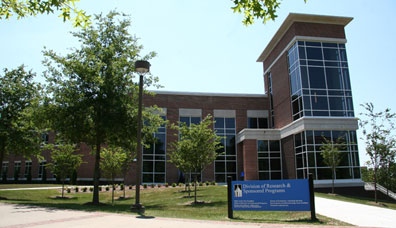
NASHVILLE, Tenn. — A tiger isn’t just the school’s mascot — it’s the acronym for their new research facility as well.
Tennessee State University received a $1.3 million grant to create the Tennessee State University Interdisciplinary Graduate Engineering Research (TIGER) Institute — a graduate level research facility for the College of Engineering, Technology and Computer Science.
The grant was awarded by the National Science Foundation under the American Recovery and Reinvestment Act of 2009 and will go towards the renovation of relocation of five existing research laboratories into the new TIGER facility, according to the university.
The Institute will be located in the currently unfinished lower level of the Research and Sponsored Programs building on the western part of the campus.
The facility will create more opportunities for externally funded research projects, said Maria Thompson, vice president of the Division of Research and Sponsored Programs and the principal investigator for the grant.
“We’ve spent several months completing the grant proposal for this facility,” Thompson said. “Now TSU will have more advanced laboratories for our faculty and students to conduct research in areas of high national STEM workforce need.
The TIGER Institute will accelerate the University’s growing industry-research collaborations with Boeing, IBM, Raytheon, General Motors, DuPont and other companies, according to the school.
“The amenities within Torrence Hall are challenged by age and volume,” said Ron Brooks, assistant vice president of Facilities Management. “The new facility will resolve those issues and provide an abundance of additional resources.”
The Institute will allow the school to attract scholars, as well as contribute to the increase of the nation’s minority masters and doctorates in science, technology, engineering and mathematics.
“TSU is recognized as one of the top universities in the nation in graduating African-American students with engineering degrees,” said S. Keith Hargrove, dean of the College of Engineering. “The transformation of the research facility has the potential to have a significant economic impact in the form of the development of a high-technology-enabled workforce.
Construction on the TIGER Institute is scheduled to begin spring 2011 and be completed summer 2011.

